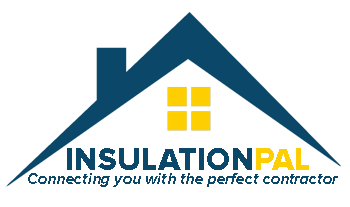Thermal Insulation: Definition and What it is
General term for materials and systems that reduce heat transfer in buildings.
What is Thermal Insulation?
Thermal insulation refers to materials and systems that reduce heat transfer between spaces with different temperatures. In buildings, thermal insulation keeps heated or cooled air inside living spaces, reducing energy consumption and improving comfort.
Thermal insulation works by resisting three types of heat transfer: conduction (through solid materials), convection (through air movement), and radiation (electromagnetic energy transfer). Different insulation materials address these mechanisms in various ways. Performance is measured by R-value (resistance to heat flow)—higher R-values mean better insulation. Effective thermal insulation also requires proper air sealing to prevent convective heat loss.
Categories of Thermal Insulation
- Bulk Insulation: Fiber-based materials that trap air (fiberglass, cellulose, mineral wool)
- Reflective Insulation: Foil surfaces that reflect radiant heat (radiant barriers)
- Rigid Foam: Plastic foam boards providing high R-value per inch (EPS, XPS, polyiso)
- Spray Foam: Expanding foam that fills cavities and seals air leaks
- Natural Insulation: Sustainable materials like wool, cotton, cork, and hemp
Optimizing Thermal Insulation Performance
Effective thermal insulation requires proper selection, installation, and integration with other building systems. Choose R-values appropriate for your climate zone—DOE publishes recommendations by region. Prioritize attic insulation (R-38 to R-60), then walls (R-13 to R-21), then floors (R-25 to R-30). Always pair insulation with air sealing—insulation slows heat transfer, but air sealing prevents heat loss via air movement. Ensure proper vapor control to prevent moisture accumulation. Install continuously without gaps or compression.
Benefits of Thermal Insulation
- Reduce heating and cooling costs by 20-50%
- Improve year-round comfort and eliminate drafts
- Reduce HVAC equipment size and operating costs
- Lower carbon footprint and environmental impact
- Increase home value and appeal to buyers
- Qualify for energy efficiency rebates and tax credits
- Provide secondary benefits: sound dampening, fire resistance, moisture control
Thermal Insulation Cost
Thermal insulation costs vary widely by material, R-value, and application, but typically offer excellent ROI.
- Material costs: $0.40-$7 per sq ft depending on type and R-value
- Installation labor: $0.40-$3.50 per sq ft
- R-value requirements (higher R-values cost more)
- Accessibility (attic cheaper than walls)
- Payback period: typically 2-10 years through energy savings
- Incentives and rebates often reduce net costs by 10-30%
How InsulationPal Can Help You
InsulationPal connects you with licensed, experienced insulation contractors. Compare multiple quotes to get the best value for your project.
Free Quotes: Get multiple competitive quotes from pre-screened contractors.
Expert Matching: We match you with pros experienced in thermal insulation.
Quality Assurance: Licensed, insured, and verified contractors.
Related Services and Resources
Explore all services we offer
Expert guides and tips on insulation
